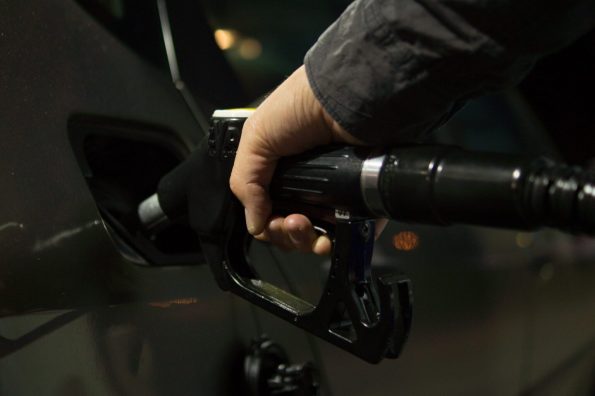Going on a road trip or generally moving from one place to another with a car in Canada can be quite expensive if gas is not well budgeted for. Gas price in Canada is quite affordable compared to many other countries if evaluated critically. There’s also a wide variety of retailers to purchase gas from depending on your location.
An Overview of Gas in Canada
Just like the body cannot function without the brain, the same can be said for gas-powered cars without gas. Gas, or gasoline or petrol is a commonly used product all over the world.
It is a petroleum-derived combustible liquid primarily used as fuel in engines. It is made from crude oil that has been processed in a refinery. No doubt, gasoline is very important in our day-to-day transition from one place to another.
Canada is the world’s fifth-largest producer of oil with an average production of 5.27 million barrels per day. This accounts for 5% of global production. Canada’s main sources of oil production are:
- The Oil Sands of Alberta
- Western Canada Sedimentary Basin
- Atlantic Offshore Fields.
Currently, in Canada, Ontario and Quebec account for 60% of the gasoline consumed. Western provinces’ consumption rate is 32% and 8% is the consumption rate in the Atlantic Province and the North.
Average Price of Gas in Canada
Gas prices all over the world vary and are not constant. The cost of gas in Canada is quite affordable depending on your province and your car – some cars use more gas than others. To save cost efficiently, you must find a balance between comfort and consumption.
Generally, about half the price of gas is accounted for by the cost of crude oil, 30% is deducted for provincial taxes and federal taxes. The rest is refining and marketing cost, transportation cost of gasoline and profit.
The cost of Gas in Canada is as much as in Europe, and 25 to 50% higher in the USA. In Canada, many factors affect the price of gas. Some of them are:
- Season
- Weather
- Demand rate
- Regional conflict
- Refining capacity
- Exchange rate of the U.S dollar
In Canada, retail prices vary according to the size of the town or city. Gasoline prices are generally lower in large cities than in small towns. This is as a result of the larger volume stations in large cities have compared to stations in small cities. Gas price also varies based on:
- The type of gas you are buying
- Taxes in your province
- The type of station
- Competition
- The selling price of the station
- The location of the station.
Canada’s retail gas market is governed by the law of the country under the Federal Competition Act and Emergencies Act.
Gas Prices in Canada By Province (Average Monthly)
Generally, you can get gas in any province in Canada, bear in mind that the price might differ depending on the province in Canada you are purchasing from. Note these prices fluctuates regularly.
The highest average price of fuel in the past year is 146.1 cents per litre while the lowest is 094.9 cents per litre.
This is the monthly average retail prices for gasoline and fuel oil according to Statistics Canada.
NOTE: These figures might not represent actual market prices.
|
PROVINCE | PRICE (CAD CENTS) |
|
British Columbia | 170.5/litre |
|
Quebec | 152.7/litre |
|
Newfoundland and Labrador | 159.2/litre |
|
Ontario | 146.2/litre |
|
Saskatchewan | 135.7/litre |
|
Prince Edward Island | 143.5/litre |
|
Manitoba | 138.5/litre |
|
New Brunswick | 142.2/litre |
|
Alberta | 138.9/litre |
|
Nova Scotia | 141.4/litre |
Currently, in Canada, British Columbia has the highest rate of gas per litre, followed by Newfoundland and Labrador, Quebec. Gas prices remain average in provinces like Ontario. Saskatchewan, Nova Scotia and Alberta currently have the lowest gas price per litre in Canada.
Gas Stations in Canada
There are different gas stations in Canada where you can re-fuel, some of them include:
- Canadian Tire Petroleum
- Chevron Corporation
- Domo gasoline
- Esso
- Federated Co-operatives
- Fifth Wheel Truck Shops
- FJ Management
- Gulf Canada
- Husky Energy
- Imperial Oil
- Irving Oil
- Joy Gas Stations
- Mohawk Oil
- North Atlantic Refining
- Nun’s Island Gas Station
- OLCO Petroleum Group
- Parkland Fuel
- Petro-Canada
- Pioneer Energy
- Sergaz
- Shell Canada
- Suncor Energy
- Supertest Petroleum
- Ultramar
- Wilson Fuel
Parkland Fuel is Canada’s largest gas station owner. It has major holdings in all of the most populous provinces in Canada.
There are other alternatives to gas available in Canada, they are:
- Biodiesel
- Natural gas
- Electricity
- Hydrogen
- Ethanol
- Fuel Cells
- Hydrogen







